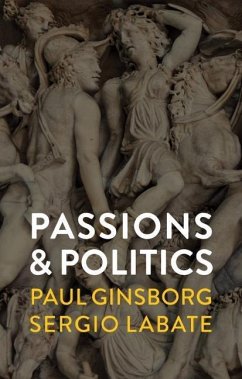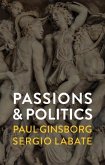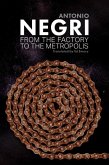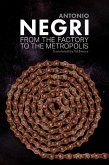The dominant model of democratic politics emphasizes reason at the expense of the passions. Passions have been treated as dangerous, the opposite of reason and the enemy of virtue. Paul Ginsborg and Sergio Labate challenge this model and put forward a very different view, developing an account of modern democratic politics in which both passions and reason play a crucial role.
To do justice to the role of passions in politics, we must pay close attention to the way in which they circulate among us; then we must develop a suitable language to describe them - an 'alphabet of the passions' that enables us to understand how they combine with one another and connect with certain states of mind in order to shape political outcomes. Adopting this approach enables the authors to shed new light on one of the major phenomena of our time - the triumph of neoliberalism on a world scale. Neoliberalism has worked so well because it has incorporated its own romantic and individualist version of the passions into its worldview, seducing both individuals and families with the allure of consumption.
By developing a new model of democratic politics based on the interplay of passions and reason, Ginsborg and Labate provide a much needed framework for understanding the crucial role that passions play in the unfolding of political life. At a time when populist leaders are on the ascendancy and political processes are shaped as much by anger, resentment and fear as they are by reason and argument, this refocusing of political analysis on the role of the passions could not be more timely.
Hinweis: Dieser Artikel kann nur an eine deutsche Lieferadresse ausgeliefert werden.
To do justice to the role of passions in politics, we must pay close attention to the way in which they circulate among us; then we must develop a suitable language to describe them - an 'alphabet of the passions' that enables us to understand how they combine with one another and connect with certain states of mind in order to shape political outcomes. Adopting this approach enables the authors to shed new light on one of the major phenomena of our time - the triumph of neoliberalism on a world scale. Neoliberalism has worked so well because it has incorporated its own romantic and individualist version of the passions into its worldview, seducing both individuals and families with the allure of consumption.
By developing a new model of democratic politics based on the interplay of passions and reason, Ginsborg and Labate provide a much needed framework for understanding the crucial role that passions play in the unfolding of political life. At a time when populist leaders are on the ascendancy and political processes are shaped as much by anger, resentment and fear as they are by reason and argument, this refocusing of political analysis on the role of the passions could not be more timely.
Hinweis: Dieser Artikel kann nur an eine deutsche Lieferadresse ausgeliefert werden.
'How should we try to fashion our feelings and imaginations across our lives, so that they equip us best to live well together on the scale we need to, is the oldest and deepest challenge in political and religious thinking. Passions and Politics poses that drastic question bravely once again and offers a fresh answer for the epoch of global neoliberalism.'
John Dunn, King's College, Cambridge
"Optimistic but not reassuring... essential reading for anyone concerned about the media's use of fear and resentment to nudge the political agenda to the right."
Morning Star
John Dunn, King's College, Cambridge
"Optimistic but not reassuring... essential reading for anyone concerned about the media's use of fear and resentment to nudge the political agenda to the right."
Morning Star








